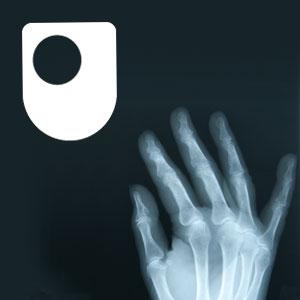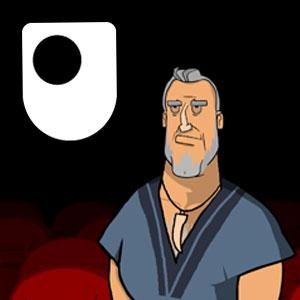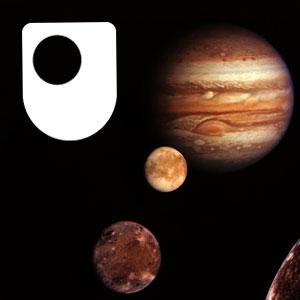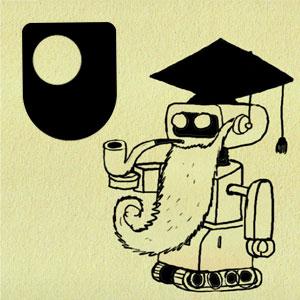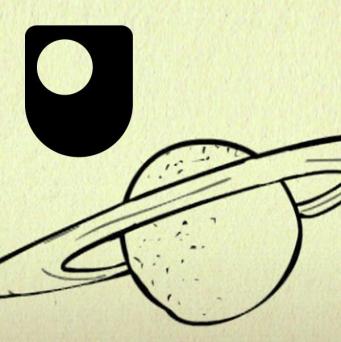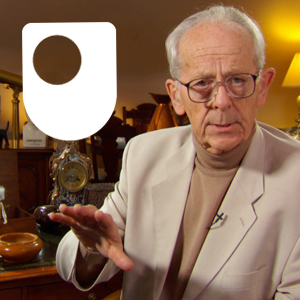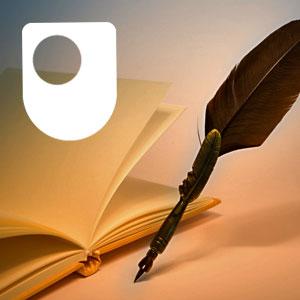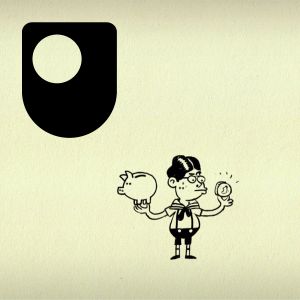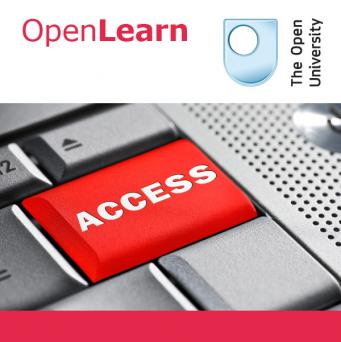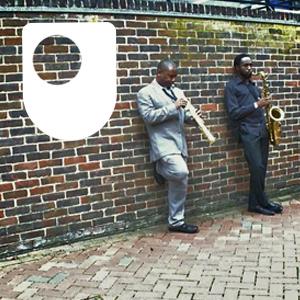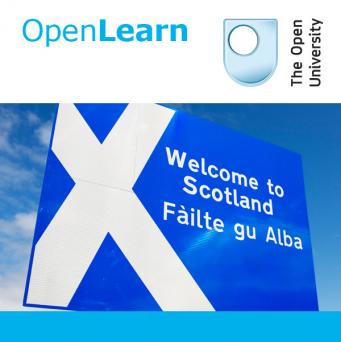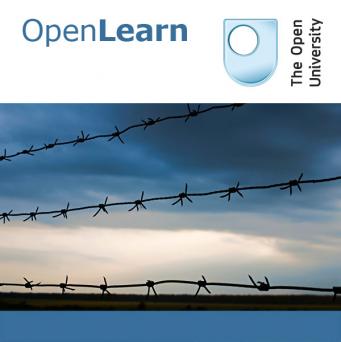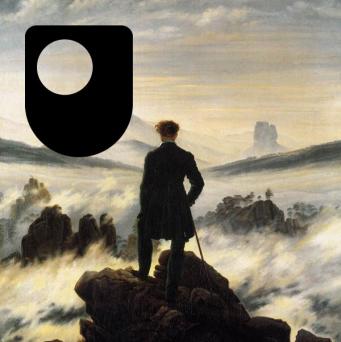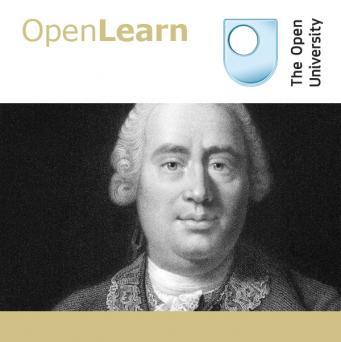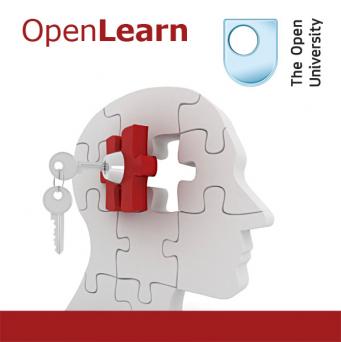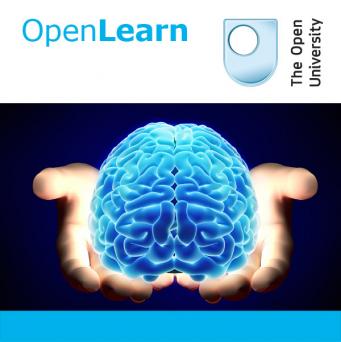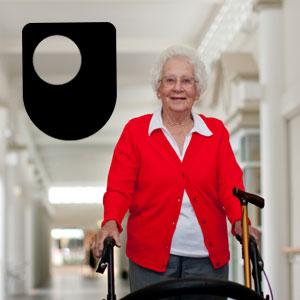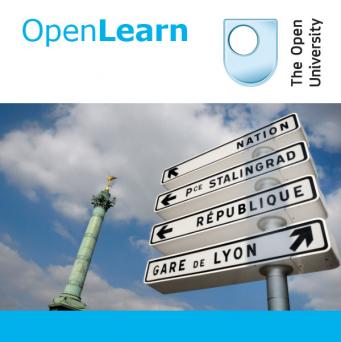The Open University
Rheumatoid arthritis is a chronic long term condition that principally attacks flexible joints, causing painful swelling, stiffness and fatigue. The risk of developing RA is associated with ageing but it also affects adults of working age and is three times more common in women. 56 year old Liz...
How did the fictional world James Joyce created reflect his own experiences of Dublin? Did Joyce write about a distinct Irish identity that had been ignored by many writers in the past? James Joyce was born in1882 and during the course of his life became one of the most influential Irish poets...
What does ‘2001: a Space Odyssey’ have to do with Odysseus? How does Brad Pitt's Achilles in 'Troy' match up to Homer's original hero? And is Arnold Schwarzenegger the new Heracles? This collection of video animations and audio discussions examines how the heroes of Greek mythology have been...
How did the solar system form? Are we alone in the Universe? What are alien atmospheres made of? These questions can be answered by studying the solar system's vast family of satellites. This collection of videos looks at five of the most intriguing worlds that we've managed to visit over the...
Can a cat be both alive and dead? Can a computer think? How does a tortoise beat Achilles in a race? Voiced by comedian David Mitchell, these fast-paced animations explain six famous thought experiments, from the ancient Greeks to Albert Einstein, that have changed the way we see the world....
Are you interested in learning more about one of Europe's oldest languages? Or would you simply like to brush up on your Welsh? Then look no further. This collection of audio material features a variety of speakers, talking about their interests, holidays, opinions, likes and dislikes. A short...
Ever wondered where the Universe came from? Or more importantly, where it's headed? Voiced by David Mitchell, this series of 60 second animations examines different scientific concepts from the big bang to relativity, from black holes to dark matter. The series also explores the possibility of...
Is space just another name for nothing? What is time and how does it relate to space? Will we ever understand the relationship between consciousness and the physical brain? Welcome to the world of The Open University’s Professor Russell Stannard where the big mysteries of the universe are made...
In this album, some of our current and most well-respected playwrights offer an insight into the mechanics and beauty of writing for the stage. Contributors include Alan Ayckbourn, David Edgar, Bryony Lavery and Willy Russell, who discuss their own work and the pleasures and pitfalls of crafting...
Ever shaken an invisible hand? Been flattened by a falling market? Or wondered what took the bend out of Phillips' curve? David Mitchell helps reveal some of the great dilemmas faced by governments trying to run an economy - whether to save or spend, control inflation, regulate trade, fix...
The principal tenets of the movement known as Romanticism first began in Germany and England, with the former pioneering the moral and philosophical beliefs and the latter producing the first Romantic artists and poets. This album concentrates on the development and spread of Romanticism in...
Ethics Bites is a fascinating and absorbing series of interviews covering topics such as animal rights, euthanasia, censorship and fertility treatment. The interviews are introduced by David Edmonds, while Open University philosopher and best-selling author, Nigel Warburton, puts the questions,...
It is part of a teaching professional’s skills to understand the needs of a diverse population of students. This unit introduces the challenges for disabled students who may use computers in different ways when taking part in eLearning or may need alternative teaching methods. It covers the...
The popular American TV series "Buffy the Vampire Slayer" spanned seven seasons and gained a cult following. But how is it linked to the culture of ancient Greece and Rome? On closer inspection, its characters and narratives are revealed to be new incarnations of ancient classical myths that have...
What is Black British Jazz? This short film explores the research carried out by The Open University research team led by Dr Jason Toynbee who has been examining the history of Black British Jazz and the stories of the artists who have performed it. This video looks at the history of jazz and how...
Modern Scotland is a multi-lingual country. Gaelic, Scots and English, along with newer introductions from Europe and beyond, all influence the way Scotland’s people now speak to each other and to the rest of the world. Created with the positive encouragement of Bòrd na Gàidhlig and with support...
Traditional Indian singing is intoxicating - but what is it about singing, and listening to others sing, that makes it so significant? In this album, Sudokshina Chatterjee breaks down the unique Indian style, and explains the emotions and meaning behind the songs of her culture. This material is...
Is it possible to eradicate poverty? What steps should be taken to ensure an environmentally sustainable future for our planet? Rio+20 is a United Nations conference that draws in participation from all over the world attracting members of governments, the private sector as well as NGO’s amongst...
With ever-increasing divorce rates and relationship break-ups, how do some couples manage to stay together for years, sometimes forever? In this collection of audio and video podcasts, we reflect on the adult couple relationship in the UK, how couples perceive love and commitment, and the...
This course is designed to stimulate informed debate about the role of Islam in western societies. Issues explored include the diversity of western Muslim populations and leaders; the role of the media; Muslim education and social and political engagement; and the politics of multiculturalism....
Autumn 2008 witnessed a global financial crisis with governments worldwide taking emergency action to prevent a collapse of the banking system. The aftermath of the worst financial crisis since the 1930s saw economic activity slump. In the UK, higher unemployment, falling house prices and a sharp...
Since the dawn of civilisation, humans have used everyday materials to create mathematical models of the world around them. This album explores the ancient Greeks' astrolabe as a model of the skies; the sundial, to tell the time; Babylonian clay tablets to record wages and trading of sheep;...
What does it mean to be poor, or an immigrant? What form should Aid take? This album begins to explore the complex issues of international development in a globalised world, starting with a look at schemes which attempt to alleviate poverty. Small business owners are empowered by micro-financing...
How did the solar system form? Are we alone in the Universe? What are alien atmospheres made of? These questions can be answered by studying the solar system's vast family of satellites. This collection of videos looks at five of the most intriguing worlds that we've managed to visit over the...
In commemoration of Handel's 250th anniversary, world renowned Handel scholar and Open University Professor Donald Burrows introduces one of the most famous composers of the eighteenth century. Devised for non-musicians and beginners, the 5 video and 5 audio tracks in this album explore the music...
Is space just another name for nothing? What is time and how does it relate to space? Will we ever understand the relationship between consciousness and the physical brain? Welcome to the world of The Open University’s Professor Russell Stannard where the big mysteries of the universe are made...
Can a cat be both alive and dead? Can a computer think? How does a tortoise beat Achilles in a race? Voiced by comedian David Mitchell, these fast-paced animations explain six famous thought experiments, from the ancient Greeks to Albert Einstein, that have changed the way we see the world....
Psychological factors can play a significant role in sport and exercise. In sport, psychological preparation could mean the difference between winning and losing, whilst in exercise psychological factors could dictate whether or not we decide to even start an exercise programme. What are the...
Where did the phrase ‘a wolf in sheep’s clothing’ come from? And when did scientists finally get round to naming sexual body parts? Voiced by Clive Anderson, this entertaining romp through 'The History of English' squeezes 1600 years of history into 10 one-minute bites, uncovering the sources of...
This unit explores the Holocaust, as the destruction of European Jewry is commonly known. The mass killing represented by the Holocaust raises many questions concerning the development of European civilisation during the twentieth century. This unit, therefore, covers essential ground if you wish...
How do young children learn, and how can adults help them? This album looks at how nursery teachers support children in their development. We follow a practitioner’s day, looking at how she works with children, observes and plans for further activities while she also records her thoughts and...
It is often said that a movie comes to life in the edit suite. Ben Harrex of Final Cut post production studios in London discusses five themes with examples; The Cut, The Dissolve, Cropping and Resizing, Titles and The Sound. Ben explains how the video editor has a huge amount of creative control...
“You just want to step out of it, to step out of the whole race, the whole business. The monstrosity of life overwhelms you.” Following a nervous breakdown in 1995, actor and journalist Stephen Fry discovered he was suffering from bi-polar disorder – commonly known as manic depression. Symptoms...
What do we mean when we say globalisation? Does the growth of globalisation hinder or benefit mankind? It’s a common assumption that countries globalise but in fact it’s not nations themselves but rather the Industries and companies that trade within and outside their borders. As new forms of...
Where did the phrase ‘a wolf in sheep’s clothing’ come from? And when did scientists finally get round to naming sexual body parts? Voiced by Clive Anderson, this entertaining romp through 'The History of English' squeezes 1600 years of history into 10 one-minute bites, uncovering the sources of...
How did Romantic writers address questions of identity? How did their experiences influence the way they expressed themselves? The Romantic period saw a rise in creative, artistic and intellectual pursuits in eighteenth century Europe. The era placed greater emphasis on emotion and intuition as...
Poetry is a delicate and intricate art form, practised by many people but rarely mastered. In this album, poets Jackie Kay, Paul Muldoon, W.N. Herbert and Jean Breeze talk about their respective approaches and attitudes to poetry. They explore many aspects of their craft, from the initial spark...
This course revises and consolidates your knowledge of French and teaches more advanced language skills whilst offering insights into many aspects of every day life in modern France. Your knowledge need not be formal; it could come from adult education classes, time spent in French-speaking...
The history and development of political philosophy has been dominated by many inspirational and radical thinkers. The tracks on this album offer both an introduction and an in-depth insight into the leading theorists in this field and their most important works. In a series of lively and...
In the eighteenth and nineteenth centuries, the approach to medicine was vastly different from today. Health is now recognised, at least in most European countries, as a universal right, but what was it like in the past? How did social and political boundaries affect access to treatment, and what...
Have you ever considered what being conscious actually means? By choosing to live in a particular state are you consenting to be subject to all its laws? For some there’s an assumption that philosophy might not be relevant to modern life but Dr. Nigel Warburton, senior lecturer in Philosophy at...
Dyslexia is a condition affecting literacy skills. This unit analyses how our image of normality affects the way we as a society define such conditions. You will learn how important it is to integrate the different psychological accounts of dyslexia in order to provide a full explanation of...
Psychological factors can play a significant role in sport and exercise. In sport, psychological preparation could mean the difference between winning and losing, whilst in exercise psychological factors could dictate whether or not we decide to even start an exercise programme. What are the...
To mark the re-launch of the Large Hadron Collider, the world's most powerful particle accelerator, this album examines how an accelerator works, why the LHC failed in 2008 and what scientists hope its high-energy collisions will reveal. The audio tracks feature Dr Stephen Serjeant and Dr David...
The dominance of the English language around the world dates back to the era of British colonialism. English spread across the globe as a consequence of the British Empire and was often imposed on countries as a result of colonialism. But what is the attitude of post-colonial countries to the...
Psychology is not a simple subject. This unit examines how different aspects of human behaviour provide the focus for different psychologists. Using learning as an example, you will discover how many different approaches can be adopted thus illustrating that there is no single way of answering...
Technology and music have been closely associated since the very first musical instruments were constructed, and in the 19th century an explosion of invention revolutionised the way brass instruments could be played. The 14 video tracks on this album introduce the basic acoustical principles of...
The impact of disorientating spaces on people with dementia can be profound, and can create serious deterioration in their wellbeing. Case studies of new build and refurbished care homes reveal how dementia-friendly interior and exterior design enable improved working practices for care staff,...
This is the second unit taken from Ouverture, a language course that concentrates on French as a tool for communication, but it also provides some insights into French society and culture through authentic printed, audio and video materials. It will be of interest to all those who want to improve...
What can current theories about children’s learning and development contribute to the development of new teaching and learning methods in schools? And how are new digital technologies changing the ways children think and learn? This album introduces two elements of The Open University's presence...
